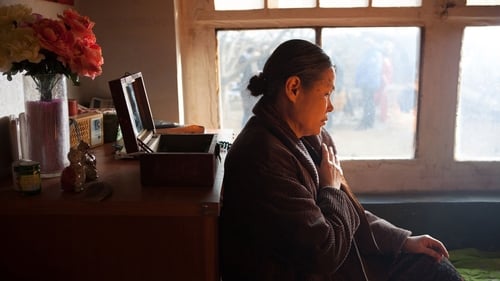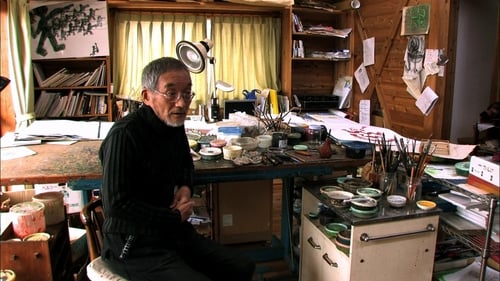Senso Daughters (1990)
Жанр : документальный
Время выполнения : 54М
Директор : Yuka Sekiguchi
Краткое содержание
Senso Daughters focuses on the legacy of the Japanese occupation of Papua New Guinea during the Second World War. It is a legacy that arises from rape, starvation and terror. Sekiguchi's documentary lets the residents of Papua New Guinea, especially the women, tell the story of their three years under Japanese Army rule.
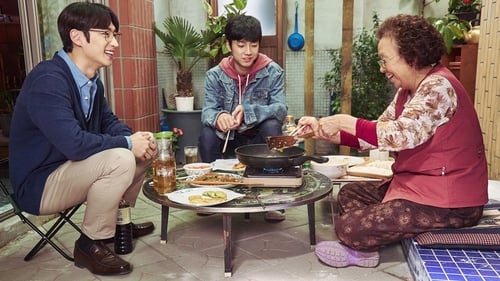
A grumpy old woman befriends a young civil servant and learns English from him. She then reveals to him her shocking past.

"The Apology" explores the lives of former "comfort women," the more than 200,000 girls forced into sexual slavery during World War II. Today, they fight for reconciliation and justice as they struggle to make peace with the past.

A Japanese-American director digs deep into the controversial 'comfort women' issue to settle the debate on whether the women were paid prostitutes or sex slaves, and reveals the motivations and intentions of the main actors pushing to revise history in Japan.
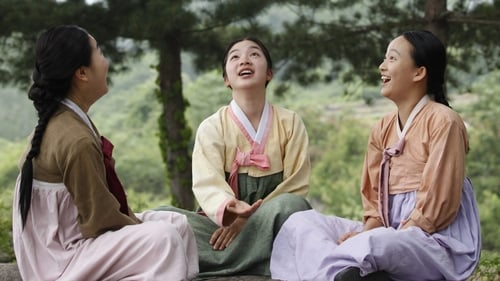
After the Japanese kidnap two Korean teenagers and take them to a comfort station to join other girls who are serving as sex slaves, only one of them survives. Decades later, the elderly woman tries to reunite with her friend's spirit.

Movie about tortured and humiliated women in concentration camps in Bosnia and Herzegovina.
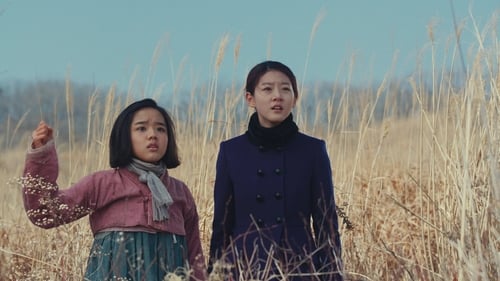
Jongbun is sick of poverty and she admires Young-ae, a smart and pretty friend. Taking place at the end of Japanese colonialism, a sad but beautiful story about two girls begins.
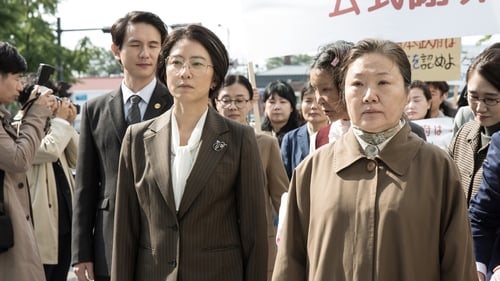
A true story of a six-year-long legal conflict of 10 comfort women and 13 attorneys against 200 Fukuoka supporters association.
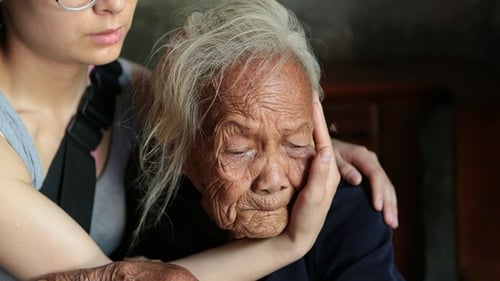
Follow the lives of the elderly survivors who were forced into sex slavery as “Comfort Women” by the Japanese during World War II. At the time of filming, only 22 of these women were still alive to tell their story. Through their own personal histories and perspectives, they tell a tale that should never be forgotten to generations unaware of the brutalization that occurred.
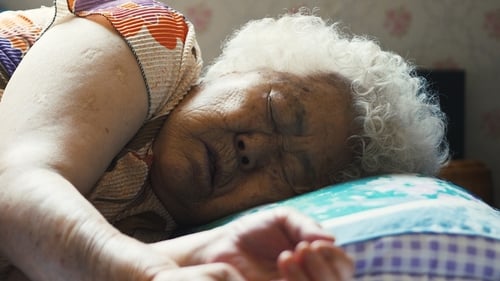
Life story of sexually harassed women by Japanese army, so called "comfort women" and the reflected story of Grandma, Ok-seon Lee in that period of time
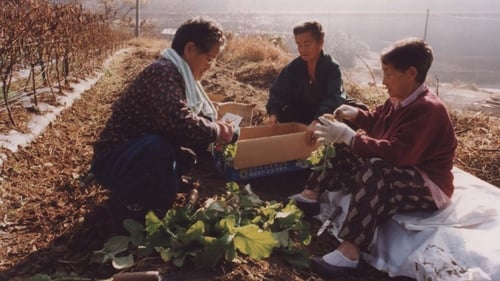
In World War II Japan forced many South Korean girls into sexual slavery. Known as "comfort woman," they were abducted as teenagers and shipped off to the front to service as many as 30 troopers a day. In 1991, some of them began testifying about their experiences. A "sharing house" was then established for former comfort women and provided the setting for Habitual Sadness, a documentary showing the enduring wounds but strong spirit of these women.
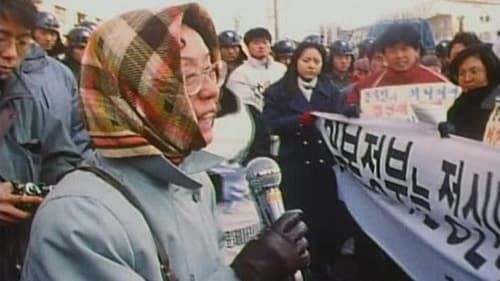
At noon every Wednesday, women who used to be comfort ladies and their supporters demonstrated against the Japanese Government in an attempt to receive an official apology and compensation for damages against Korean women who had been held captive as sex slaves by the imperialist Japanese Army during World War II. Overcaming years of embarrassment and silence, the old women tell us their stories of the past. A house called 'Share' is the shared residence of six women with the same past. Learning Korean alphabet and drawing regardless of weather, they continue their hard lives to overcome the period of regret and pain.
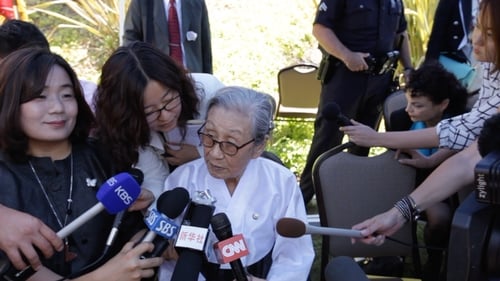
In 1992, KIM Bok-dong, reported herself as a victim of the sexual slavery, "comfort women" during World War Ⅱ. She wanted to receive the proper apology from the Japan government but they denied its responsibility. In 2011, commemorating the 1000th Wednesday demonstration, Statue of Peace was installed in front of the Embassy of Japan. The fight over Japan confronts a new stage.

Final chapter of a trilogy documenting the present and past lives of "comfort women".

Senso Daughters focuses on the legacy of the Japanese occupation of Papua New Guinea during the Second World War. It is a legacy that arises from rape, starvation and terror. Sekiguchi's documentary lets the residents of Papua New Guinea, especially the women, tell the story of their three years under Japanese Army rule.

KIM Soonak is a survivor of sex slavery by the Japanese military. The war may have ended, but her life was still at a war. She lived in the prostitute quarters to survive, did sex business in the US military camp town, and peddled goods from the US military. She raised two kids on her own as she worked as a maid. We’ll listen to her story in her absence. The film reconstructs the life story of the deceased KIM Soonak with interviews with activists, archive videos, animation, and read-aloud testimony.

The Silence narrates the struggle of fifteen "comfort women"—former sex slaves by the Imperial Japanese Army during WWII—for recognition and reparation. The "comfort women" issue has previously been treated almost exclusively within the framework of Korean nationalism. The Silence will provide insight into the ways in which nationalism and the emergence of post-war Asian nation-states have hindered the understanding of "comfort women" narratives through Zainichi Korean documentary filmmaker Soo-nam Park's point of view.

They're called bar women, hostesses, or sex workers and "western princesses." They come from poor families, struggling to earn a decent wage, only to be forced into the world's oldest profession. They're the women who work in the camptowns that surround U.S. military bases in South Korea. In 40 years, over a million women have worked in Korea's military sex industry, but their existence has never been officially acknowledged by either government. In The Women Outside, a film by J.T. Orinne Takagi and Hye Jung Park, some of these women bravely speak out about their lives for the first time. The film raises provocative questions about military policy, economic survival, and the role of women in global geopolitics














